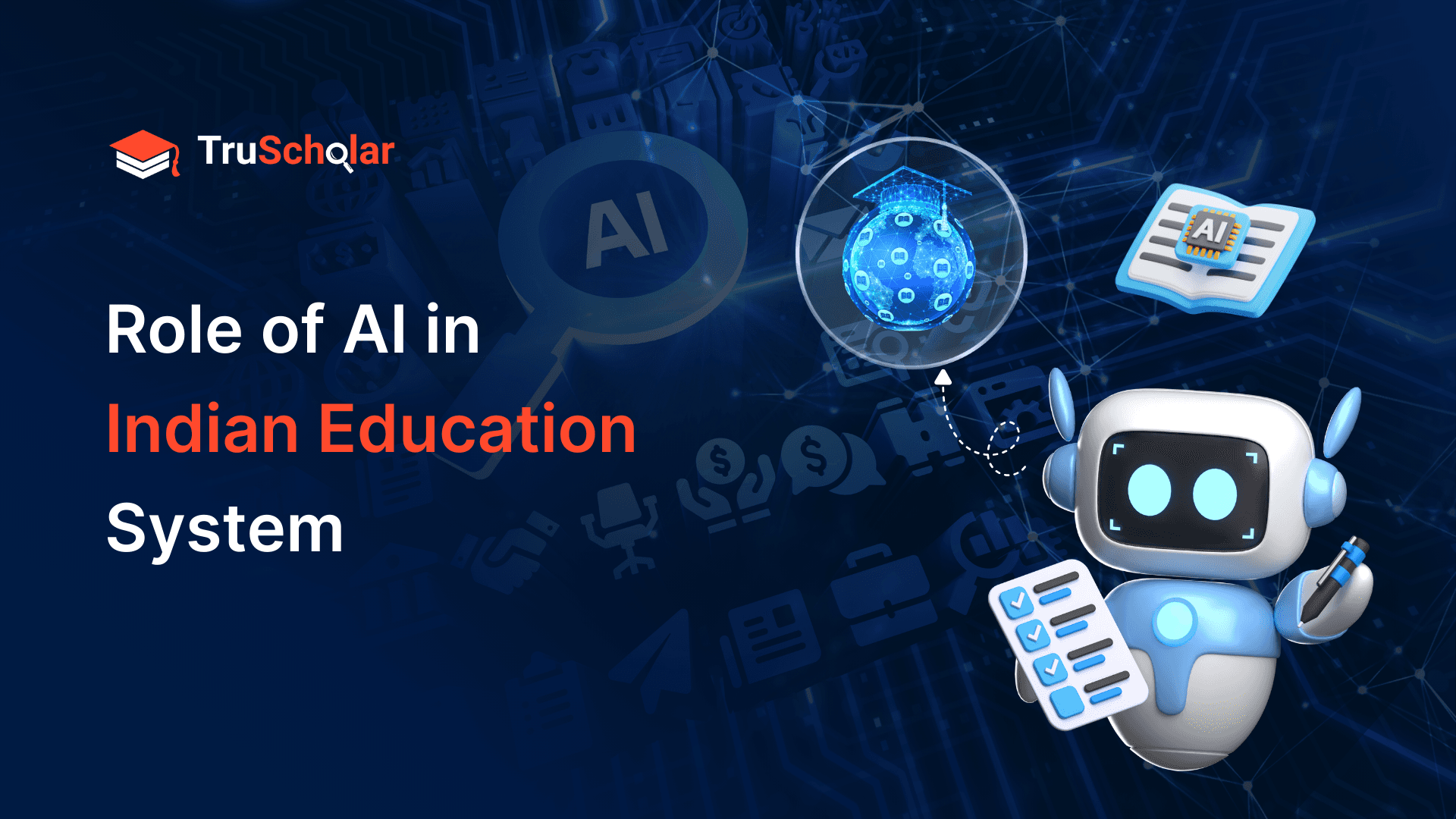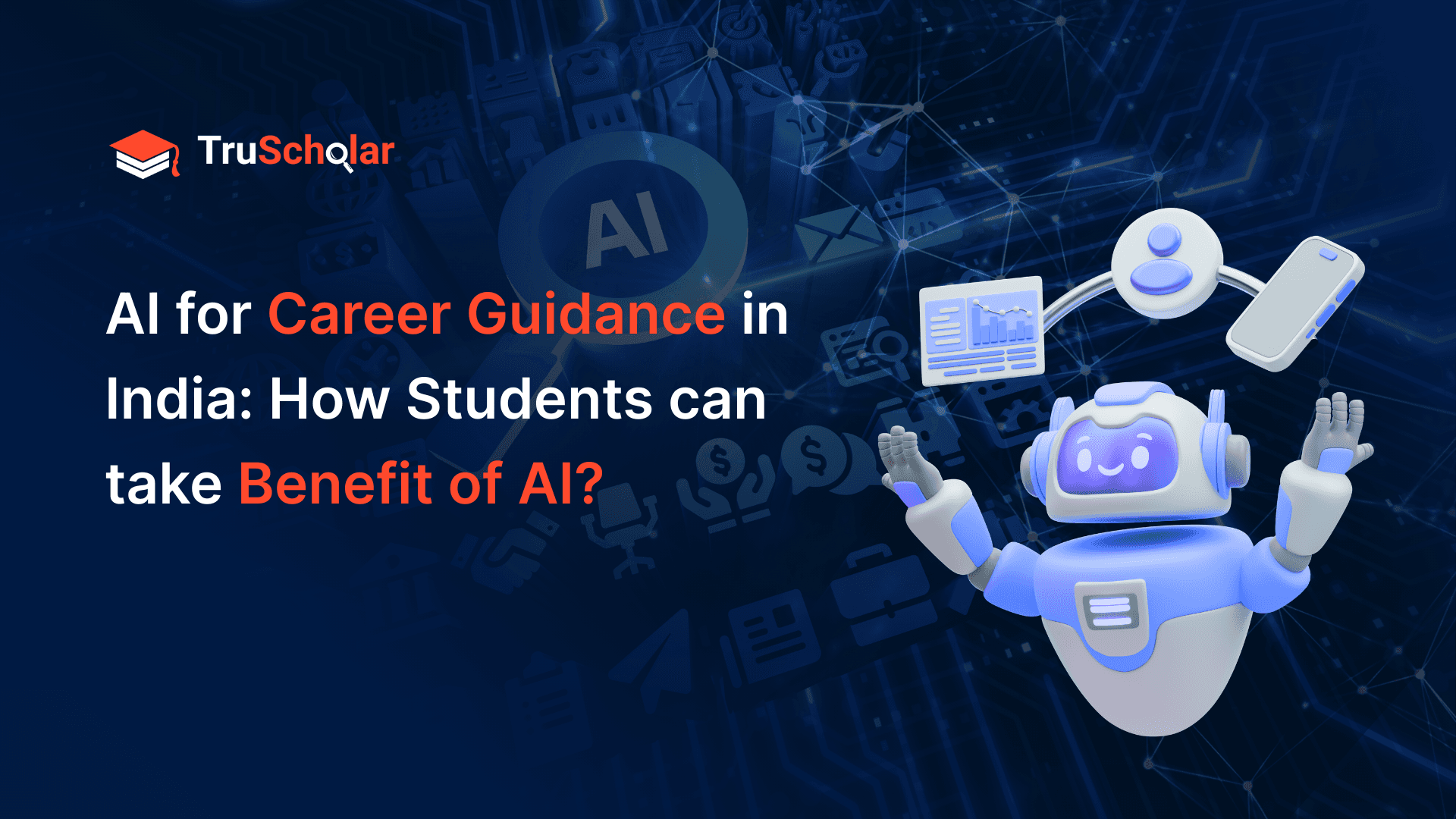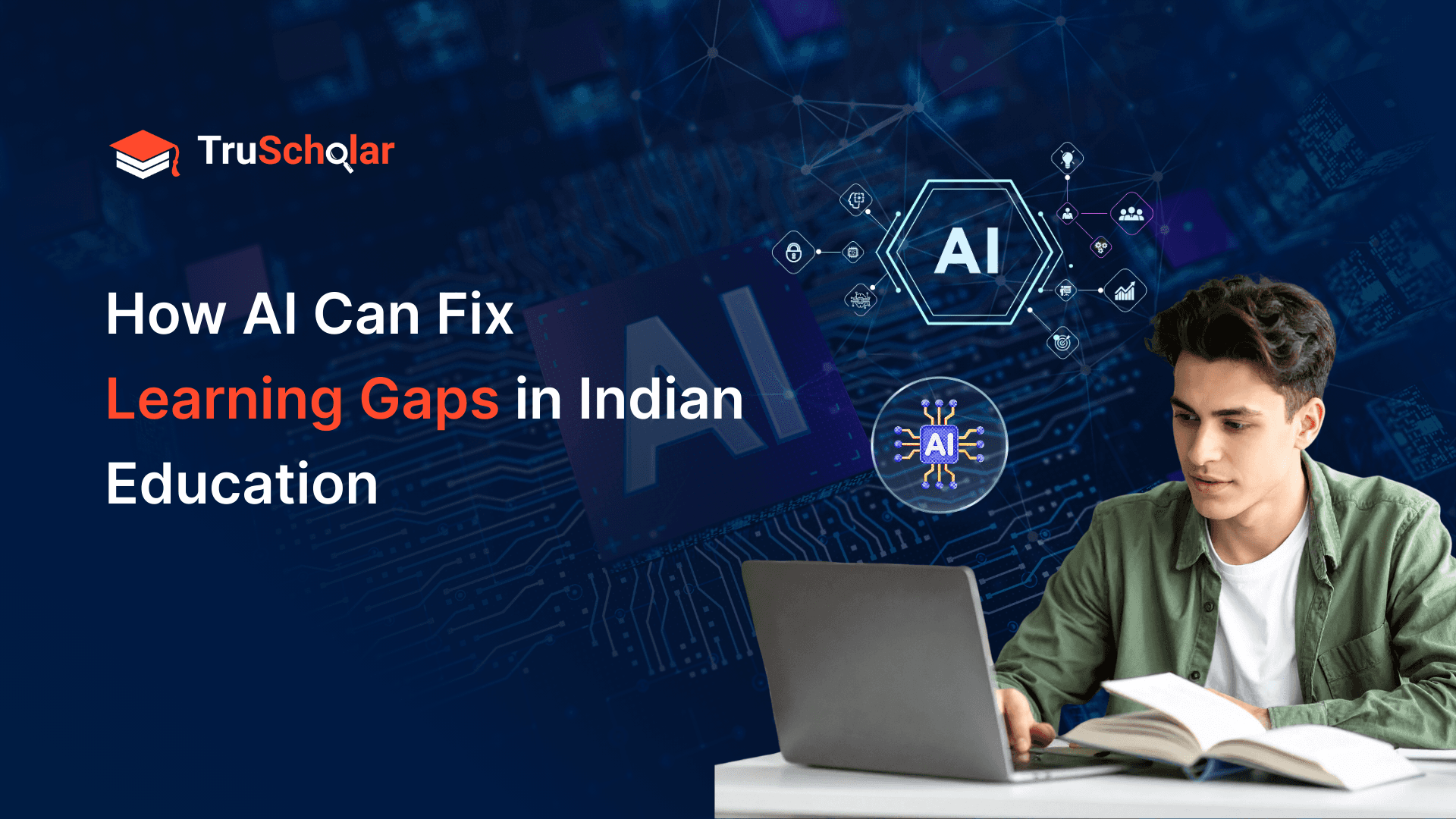AI
AI
AI
How AI and Blockchain Together Are Changing Education
How AI and Blockchain Together Are Changing Education
How AI and Blockchain Together Are Changing Education
1 Oct 2025
1 Oct 2025
1 Oct 2025


The digital transformation of education is accelerating worldwide. Institutions, governments, and employers are moving away from traditional systems of records and career guidance, replacing them with smarter, more secure, and data-driven solutions. The fusion of AI in blockchain is at the heart of this revolution. By combining the intelligence of AI with the security of blockchain, education is entering a new era of trust, personalization, and global recognition.
Why AI and Blockchain Are a Powerful Combination
Artificial Intelligence (AI) and blockchain serve very different functions, yet together they complement each other. AI brings intelligence, predictions, and personalization to learning, while blockchain guarantees transparency, security, and authenticity of records.
When applied to education, this synergy helps solve long-standing problems: fraudulent certificates, outdated counseling methods, inefficient administrative processes, and lack of global recognition. With AI in blockchain, students benefit from smart career guidance, institutions streamline record-keeping, and employers receive trustworthy, instantly verifiable information.
Applications of AI in Blockchain for Education
The integration of AI in blockchain is not just theoretical—it is already creating practical solutions for modern education systems.
Tamper-proof student records ensure that degrees, certificates, and transcripts stored on blockchain cannot be falsified, protecting authenticity.
Smart career counseling systems powered by AI analyze academic data and suggest career paths while blockchain secures the results.
Automated credential verification allows employers to instantly validate a candidate’s qualifications across borders without lengthy manual checks.
Adaptive learning platforms use AI to customize content delivery, while blockchain stores learner progress securely.
Global student mobility is enhanced as international universities and companies can trust credentials secured with blockchain.
Fraud prevention mechanisms combine AI’s detection capabilities with blockchain’s immutability for maximum protection of educational integrity.
Benefits of AI and Blockchain in Education
The combination of AI and blockchain is reshaping how students learn, how institutions operate, and how employers hire.
Authenticity of credentials ensures students’ achievements are trusted globally with blockchain’s immutable record system.
Personalized career paths guided by AI align learning with student strengths and future job market needs.
Time and cost savings reduce delays in verification, admissions, and recruitment processes for institutions and employers.
Global recognition of skills enables seamless cross-border education and employment opportunities with secure verification.
Increased student confidence helps learners trust that their efforts and qualifications will be recognized anywhere.
Improved institutional reputation builds trust with stakeholders as universities adopt modern, transparent systems.
Enhanced lifelong learning supports students by recording not just degrees but also micro-credentials, workshops, and certifications.
Challenges of Implementing AI in Blockchain
Like any innovation, integrating AI in blockchain into education faces challenges. Institutions must overcome barriers related to cost, technical expertise, and adoption readiness.
The technology demands significant investment in infrastructure and skilled professionals to maintain systems. Students in rural or underdeveloped regions may struggle with digital access. Moreover, resistance to replacing traditional paper certificates or face-to-face counseling continues to slow adoption in many regions. Regulatory frameworks are also evolving, meaning institutions must navigate compliance carefully.
Despite these challenges, the long-term benefits make the effort worthwhile. Early adopters of AI and blockchain in education are already setting global benchmarks.
Global Examples of AI and Blockchain in Action
Several countries and institutions are leading this transformation.
In India, the National Academic Depository (NAD) integrated with DigiLocker provides blockchain-secured student certificates accessible nationwide. At the same time, AI-driven platforms like CareerGuide and Mindler are personalizing career roadmaps for students.
In Europe, the European Blockchain Services Infrastructure (EBSI) is standardizing blockchain-based credentials for cross-border student mobility. Meanwhile, universities in the U.S. are piloting blockchain transcripts combined with AI-powered career counseling services. These examples show how AI in blockchain is not just an idea, but an emerging global standard.
The Future of AI and Blockchain in Education
The future promises even deeper integration of AI in blockchain into the education ecosystem. Credentials will expand beyond degrees to include short-term certifications, professional development badges, and even soft skill assessments.
AI will become more advanced in identifying student strengths, recommending global learning opportunities, and preparing learners for future jobs. Blockchain will ensure these achievements are verified and accepted worldwide. Together, they will build a transparent, personalized, and trust-driven educational ecosystem.
Additional Insights: Preparing Institutions for the Shift
For universities and schools, adopting AI and blockchain requires strategic planning. They must invest in digital infrastructure, train staff in new technologies, and collaborate with government agencies for compliance. Institutions that embrace this shift early will stand out as global leaders, offering students a competitive edge in an increasingly connected world.
The digital transformation of education is accelerating worldwide. Institutions, governments, and employers are moving away from traditional systems of records and career guidance, replacing them with smarter, more secure, and data-driven solutions. The fusion of AI in blockchain is at the heart of this revolution. By combining the intelligence of AI with the security of blockchain, education is entering a new era of trust, personalization, and global recognition.
Why AI and Blockchain Are a Powerful Combination
Artificial Intelligence (AI) and blockchain serve very different functions, yet together they complement each other. AI brings intelligence, predictions, and personalization to learning, while blockchain guarantees transparency, security, and authenticity of records.
When applied to education, this synergy helps solve long-standing problems: fraudulent certificates, outdated counseling methods, inefficient administrative processes, and lack of global recognition. With AI in blockchain, students benefit from smart career guidance, institutions streamline record-keeping, and employers receive trustworthy, instantly verifiable information.
Applications of AI in Blockchain for Education
The integration of AI in blockchain is not just theoretical—it is already creating practical solutions for modern education systems.
Tamper-proof student records ensure that degrees, certificates, and transcripts stored on blockchain cannot be falsified, protecting authenticity.
Smart career counseling systems powered by AI analyze academic data and suggest career paths while blockchain secures the results.
Automated credential verification allows employers to instantly validate a candidate’s qualifications across borders without lengthy manual checks.
Adaptive learning platforms use AI to customize content delivery, while blockchain stores learner progress securely.
Global student mobility is enhanced as international universities and companies can trust credentials secured with blockchain.
Fraud prevention mechanisms combine AI’s detection capabilities with blockchain’s immutability for maximum protection of educational integrity.
Benefits of AI and Blockchain in Education
The combination of AI and blockchain is reshaping how students learn, how institutions operate, and how employers hire.
Authenticity of credentials ensures students’ achievements are trusted globally with blockchain’s immutable record system.
Personalized career paths guided by AI align learning with student strengths and future job market needs.
Time and cost savings reduce delays in verification, admissions, and recruitment processes for institutions and employers.
Global recognition of skills enables seamless cross-border education and employment opportunities with secure verification.
Increased student confidence helps learners trust that their efforts and qualifications will be recognized anywhere.
Improved institutional reputation builds trust with stakeholders as universities adopt modern, transparent systems.
Enhanced lifelong learning supports students by recording not just degrees but also micro-credentials, workshops, and certifications.
Challenges of Implementing AI in Blockchain
Like any innovation, integrating AI in blockchain into education faces challenges. Institutions must overcome barriers related to cost, technical expertise, and adoption readiness.
The technology demands significant investment in infrastructure and skilled professionals to maintain systems. Students in rural or underdeveloped regions may struggle with digital access. Moreover, resistance to replacing traditional paper certificates or face-to-face counseling continues to slow adoption in many regions. Regulatory frameworks are also evolving, meaning institutions must navigate compliance carefully.
Despite these challenges, the long-term benefits make the effort worthwhile. Early adopters of AI and blockchain in education are already setting global benchmarks.
Global Examples of AI and Blockchain in Action
Several countries and institutions are leading this transformation.
In India, the National Academic Depository (NAD) integrated with DigiLocker provides blockchain-secured student certificates accessible nationwide. At the same time, AI-driven platforms like CareerGuide and Mindler are personalizing career roadmaps for students.
In Europe, the European Blockchain Services Infrastructure (EBSI) is standardizing blockchain-based credentials for cross-border student mobility. Meanwhile, universities in the U.S. are piloting blockchain transcripts combined with AI-powered career counseling services. These examples show how AI in blockchain is not just an idea, but an emerging global standard.
The Future of AI and Blockchain in Education
The future promises even deeper integration of AI in blockchain into the education ecosystem. Credentials will expand beyond degrees to include short-term certifications, professional development badges, and even soft skill assessments.
AI will become more advanced in identifying student strengths, recommending global learning opportunities, and preparing learners for future jobs. Blockchain will ensure these achievements are verified and accepted worldwide. Together, they will build a transparent, personalized, and trust-driven educational ecosystem.
Additional Insights: Preparing Institutions for the Shift
For universities and schools, adopting AI and blockchain requires strategic planning. They must invest in digital infrastructure, train staff in new technologies, and collaborate with government agencies for compliance. Institutions that embrace this shift early will stand out as global leaders, offering students a competitive edge in an increasingly connected world.

Issue Digital Credetials, Certificate, marksheet instant with Secure Blockchain Technology.
Read More Blogs
Read More Blogs
Read More Blogs

Ai career coach
Role of AI in Indian Education System
2 Mar 2026

AI career coach
AI for Career Guidance in India: How Students Can Take Benefit of AI?
27 Feb 2026

Ai Career coach
How AI Can Fix Learning Gaps in Indian Education
27 Feb 2026

Ai career coach
AI Skills Indian Students Must Learn for Future Jobs
26 Feb 2026

Ai career coach
The Impact of Artificial Intelligence on Education in India
25 Feb 2026

Ai career coach
The Role of AI in Education and Learning
24 Feb 2026

Ai career coach
Role of AI in Indian Education System
2 Mar 2026

AI career coach
AI for Career Guidance in India: How Students Can Take Benefit of AI?
27 Feb 2026

Ai Career coach
How AI Can Fix Learning Gaps in Indian Education
27 Feb 2026

Ai career coach
AI Skills Indian Students Must Learn for Future Jobs
26 Feb 2026

Ai career coach
Role of AI in Indian Education System
2 Mar 2026

AI career coach
AI for Career Guidance in India: How Students Can Take Benefit of AI?
27 Feb 2026

Ai Career coach
How AI Can Fix Learning Gaps in Indian Education
27 Feb 2026

Ai career coach
AI Skills Indian Students Must Learn for Future Jobs
26 Feb 2026


